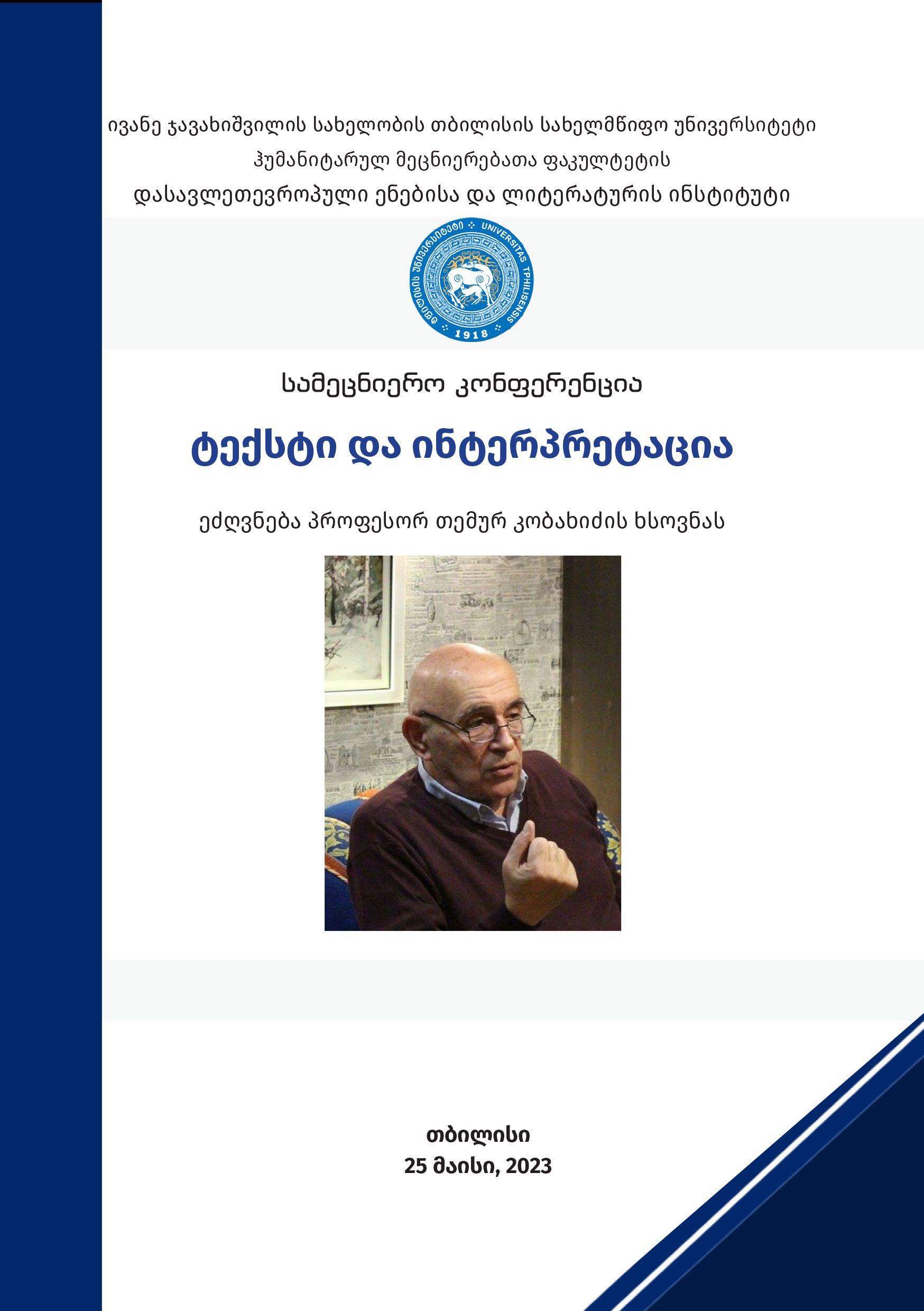“The Tower of Expectation” and “Kakadu” in Giwi Margwelashwili’s Novel Captain Vakushi. Book I: In Germany
DOI:
https://doi.org/10.55804/jtsu-2960-9461-2023-5Keywords:
Immigration, postmodernism, Wartburg, Cacadu, JazzAbstract
German-Georgian writer, philosopher and jazzman Giwi Margwelaschwili (1927-2020) is a unique phenomenon in the literary history. A victim of two totalitarian regimes, Nazism and Communism, he finds shelter and spiritual peace “between the two book covers”. In the seven volumes of Captain Vakushi, out of which only three have been published, he retells his life story and at the same time conveys his philosophical and aesthetic views.
Captain Vakushi, aka Vakhushti, the main protagonist of Giwi Margwelaschwili’s texts, is his alter ego. “The tower of expectation” or “Wartburg” is his immigrant parents’ three-room flat in Berlin. Raised by German nannies in his father’s “Wartburg”, he finds spiritual consolation in “Kakadu”.
Historical Wartburg, a beautiful castle in Thuringia, the place where Martin Luther translated The New Testament and Johann Sebastian Bach was born, the site of legendary “Minstrels’ Contests” in the middle ages, was immortalized by Novalis in his Heinrich von Ofterdingen. This bildungsroman embodies the aesthetic doctrines of the Jena Romanticism and describes the mystical and romantic searchings of a young poet who strives to transcend the boundaries of his own self. Giwi Margwelaschwili seemingly adheres to the conventions of the bildungsroman by following the spiritual evolution of Vakushi. However, like Günter Grass’s The Tin Drum, the first book of Captain Vakushi can be defined as anti-bildungsroman. Totalitarian regimes affected Vakushi’s upbringing and life in many ways. As a kind of protest against the socialist dictatorship, in his historical homeland the writer writes in German. Despite many challenges and obstacles, his spiritual world is related to the German-speaking space. However, he also makes use of Georgian themes and imagery that inform his postmodernist writings with the quality of originality. At the same time, he represents a portrait of an immigrant boy who finds freedom in his father’s “Wartburg” and “Kakadu” where jazzmen played music during the Nazi dictatorship.
“Kakadu”, one of Berlin’s biggest bars in the 1930s, is featured in the novel as a miraculously surviving gathering place for freedom-loving people that “continued its modest existence in one of the underground cellars of the Empire”.
Giwi Margwelaschwili is a great master of literary portraiture – a masterful portrayal of the famous Italian jazzman and band leader Tulio Mobilia (1911-1991) is a clear example. He and his septet enjoyed great popularity in the Bavarian quarter of Berlin and the “Rosita Bar” in 1940-43.
The real and the fictional are fused in a unique way in the novel and through the lens of satire and humor this fusion makes an amazing effect on the reader. Despite the fact that geographical places and character’s names are not specified, the novel can be read as a historical document that makes the reader feel the inhumanity of Nazi dictatorship. If one digs into the depths of the text, it can also be read as a testimony to the personal as well as great epochal tragedy provided by the “witness of time” and the victim of dictatorship.
For Vakushi, jazz is the world of limitless freedom. The permanent residents of “Kakadu”, the worshippers of jazz music, the so-called pipos (the author himself is one of the pipos) know everything about jazz and the jazz band is playing at “Kakadu” all night.
As the first book of Captain Vakushi demonstrates, even in his youth Giwi Margwelaschwili could see clearly an unbridgeable gap between his historical homeland (The Soviet Socialist Republic of Georgia), his real homeland (Nazi Germany) and the imaginary world created underground by virtuoso jazzmen during the WWII.

